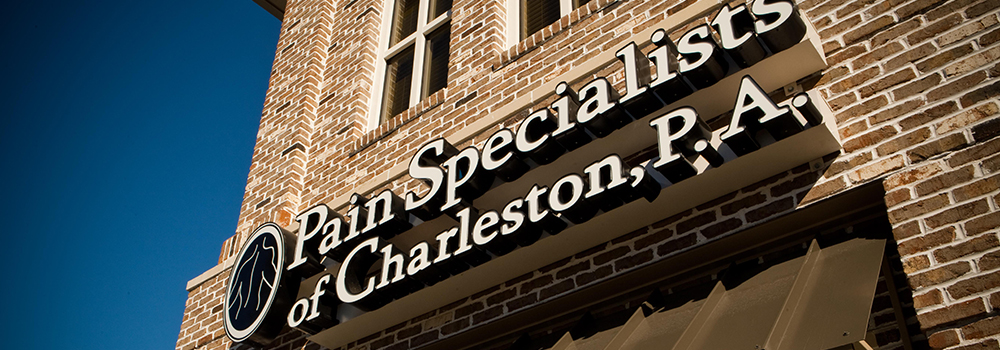Sometimes putting one foot in front of the other is easier said than done. Leg pain is a common condition that can develop naturally over time or be a sign of a more serious condition.
Pain may last anywhere from a couple of days of discomfort to months of severe pain – and determining the underlying cause can be half the battle.
Whether you are suffering from consistent shooting pain in your leg or sharp pain in your knee, our pain management physicians are here to help you! Using interventional pain management techniques, our goal is to help you say goodbye to pain without surgery or habit-forming drugs.
Keep reading to learn more about the causes of leg pain, and how we can help you on the path to a pain-free life!
Underlying Causes Behind Your Leg Pain
Leg pain can vary in severity, origin, and cause. With so many questions surrounding leg pain, how do you even begin to find relief?
The first step a pain management specialist near you will do is work to determine the root cause of your pain. Leg pain causes can originate in the following areas:
- Blood vessels
- Nerves
- Muscles
- Soft tissue
- Ligaments and tendons
- Bones
- Joints
Types of Leg Pain
Leg pain can be classified as neurological, musculoskeletal, vascular, or a combination.
Neurological pain involves damage to the nerves and can be present even in a resting state. Conditions of neurological pain include restless leg syndrome and sciatica, which is when pain from the lower back travels along a nerve to each leg.
Musculoskeletal pain affects the joints in the body. Muscle cramps or spasms, stress fractures, and arthritis are common examples of musculoskeletal issues.
Vascular pain is centered on issues concerning blood flow. One example of vascular pain is deep vein thrombosis or DVT. DVT is when a blood clot develops in a vein in the thigh or lower leg area. It can cause pain and swelling and can result in a more serious pulmonary embolism, or blood clot in the lung if left untreated.
When to Worry About Leg Pain
Experiencing the effects of a charley horse, an intense muscle spasm in your leg, can make it feel as though a visit to a pain management clinic near you is medically necessary – but when is the right time to give your pain management physician a call?
Make an appointment with Pain Specialists of Charleston if you experience the following:
- Pain during or after walking
- Swelling in one or both legs
- Gradual increase in pain
- Symptoms don’t improve after a few days of at-home treatment
- Painful varicose veins
- Any serious leg pain symptoms that start for no clear reason
While minor leg pain can be treated at home, it is always best to consult one of the pain management doctors near you for ongoing leg pain or a family history of common pain-inducing leg conditions, as it may be a sign of something more serious.
Top Five Ways to Soothe and Treat Leg Pain
Chronic leg pain is surprisingly common and surprisingly difficult to pinpoint. While some doctors may prescribe medication to help relieve symptoms, recent research points to various forms of nonsurgical treatment options – which we offer right here when you choose pain management in Charleston, SC!
Acupuncture
The spine is connected to the… Well, almost everything. Millions of people suffer from chronic back pain, which can express itself through other areas of the body: headaches, leg swelling, fatigue, and numbness in the arms and legs.
Acupuncture has been proven to offer therapeutic benefits to those suffering from nerve damage in the hands and feet.
Physical Therapy
Physical therapy can offer a wide range of techniques to help alleviate leg pain. This can include aerobic exercise, heat and cold therapy, and electrical nerve stimulation.
Massage Therapy
Massage is not only a self-care tactic to improve your mood and help with tension from a long day of work – it has also been shown to help those suffering from neuropathic leg pain.
Trigger Point Injections
Trigger points are sensitive bands of muscle knots that can be a source of pain when pressed. These injections are used to target specific areas of pain to reduce pain and inflammation.
Spinal Cord Stimulation
Also known as neuromodulation, this treatment uses an implantable device that interrupts or modulates pain signals transmitted from the spinal cord to the brain. If you have not felt relief from other pain management treatment methods, you may be a good candidate for this minimally invasive procedure.
Suffering from Leg Pain? Pain Specialists of Charleston Can Help!

Taking your beloved pet on a walk or venturing out to the tennis courts is a great way to spend a weekend – but not when leg pain stands in your way.
Leg pain is incredibly common, but that doesn’t mean you have to learn to live with it.
Serving patients throughout the Charleston, SC area, our pain management clinic offers a multidisciplinary team aimed at providing the highest quality of care through non-surgical treatment.
So, schedule an appointment at Pain Specialists of Charleston today–no referral necessary!
Request Appointment | Contact Us | Meet Pain Doctors | Visit Us
Additional Helpful Articles:
What Should I Expect During My First Pain Management Appointment?
Interventional Pain Management: Everything You Need to Know
What Does a Pain Management Physician Do?
Does Cracking Your Knuckles Cause Arthritis?
When Should I See a Doctor for Runner’s Knee?
Why Do Side Sleepers Wake Up to Shoulder Pains?
What are the Reasons for Random Pains in My Buttocks?
How Can I Get Immediate Relief for Sciatic Pain?
Get to Know Pain Management Physicians:
Our Services:
Diagnosis | Treatment | Interventional Pain Management | TRICARE | Wellness | Clinical Trials | Worker’s Compensation | Neurology | Imaging/ MRI
Published June 2024

